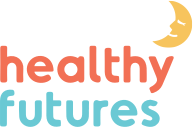Your Body
In weeks 1-12 of your pregnancy, you may experience:
Tiredness – Rest when you can, and don’t be afraid to ask for help when you need it.
Nausea and vomiting – Try not to have an empty stomach. Small snacks between meals can help. Strong smells can often make it worse.
Breast tenderness – Wear a comfortable and supportive bra.
Constipation – Eat fruits, vegetables, bran cereals, whole grain breads and drink lots of non-caffeinated liquid, preferably water; at least six to eight glasses per day.
Weight fluctuation – Stay active and eat a balanced diet.
Bleeding gums – Use a soft toothbrush and floss gently. Talk to your dentist if bleeding gums are still a problem.
Mood swings, anxiety and mixed emotions – Changes in feelings can be difficult on you and those around you but are perfectly normal.
Frequent need to urinate – It’s normal! However, if you have burning or pain along with frequency when you urinate, be sure to call your provider to be sure you don’t have an infection.
Your Baby
At one month
I am 1/4 to1/2 of an inch long. My eyes, ears, and nose are starting to appear. My heart is forming and begins beating by the end of the month.
At two months
I am two inches long. My brain grows rapidly and directs my body’s first movements. My ears, nose and mouth are taking shape. My arms and legs are getting longer and my toes are becoming more distinct. My muscles are starting to form.
At three months
I am four inches long and weigh one ounce. My baby teeth are beginning to form. I can open and close my mouth and swallow. My kidneys are developed and are starting to work. I can kick, but I am so small that you probably can’t feel me move yet.
Your Checklist
Find a health care provider.
If you don’t already have a regular health care provider, now is the time to find one. Find a doctor near you.
Eat a healthy and balanced diet.
Eat foods from the 4 food groups every day. Folate is an essential nutrient in this early stage of pregnancy. In addition to prenatal vitamins, foods that contain folate include citrus fruits, beans, enriched breads, cereals and pasta. Eating dark green leafy vegetables like spinach, broccoli, and romaine lettuce are also great ways to get folate. Talk with your health care provider to ensure you are getting an adequate amount of folate. Dads and Partners: nausea can sometimes make it difficult to prepare food. Helping with food preparation can ensure that the mom and baby are getting the nutrients they need.
Avoid alcohol, drugs and cigarettes.
Pregnancy is the time to start a new healthy future for yourself and your child. These are all substances that can have a negative impact. There are resources right here in northern Michigan that can support you in this process. Find a resource near you.
Stop cleaning the cat litter box.
If you have a cat, hand the poop scoop over to your spouse, partner or capable child. They have a new job for the next nine months and you’re off the hook! This protects your developing child from rare but potentially serious complications. If there is no one else to do it, be sure to wear gloves and wash your hands well when you are done.
Keep wearing the lap-shoulder seat belt in the car.
Start getting in the habit of placing your lap belt as low as possible. As your belly grows you will need to be careful to place the lap belt underneath your belly.
Communicate with those close to you.
Remember that pregnancy affects the entire family. Moms, Dads, partners and other children will all have a lot going on in their heads during this time.
Questions to Ask your Health Care Provider
Keep a list of questions you’d like to ask your health provider. It is normal to have many questions and concerns. Here are a few important topics you may want to discuss.
1. Prenatal Vitamins, Medications and Herbal Remedies. Many medications and herbal remedies should not be taken during pregnancy.
2. Regular physical activity can often be very beneficial. Ask your doctor what kind of routine is right for you.
3. Seafood and Freshwater Fish. Some fish may have trace amounts of mercury, which can affect your baby’s development.
4. Soft cheeses and deli meat. These foods contain a bacteria called listeria, ask your doctor about what foods to avoid.
Your Healthy Futures Nurse is also here for you. Contact your healthy futures nurse.




